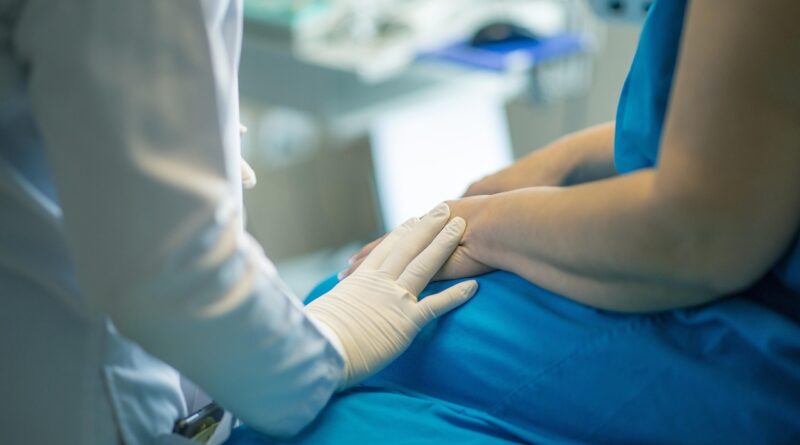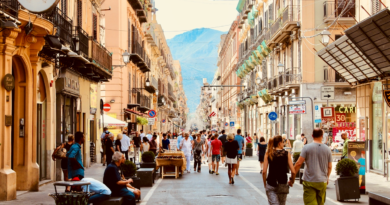Going on holiday? How to get a European health insurance card if you live in the UK
One of the benefits of EU membership that survived Brexit is the possibility, if you live in the UK, to get necessary healthcare when travelling in Europe at the same conditions as local residents.
The European Health Insurance Card (EHIC), an arrangement that allows to receive public medical care while staying in other European countries, was included in the EU-UK trade and cooperation agreement. However, there are differences compared to pre-Brexit times. What are the rules now and how to get the card? Here is all you need to know.
Two types of cards
For UK residents, there are now two types of health insurance card that can be used abroad.
One is the already known European Health Insurance Card (EHIC). Citizens from the EU, Norway, Iceland, Liechtenstein or Switzerland living in the UK with rights protected under the withdrawal agreements can still receive an EHIC. The card will mention the letters CRA for ‘citizens rights agreement’.
UK students, some British pensioners and their families are also entitled to the EHIC if they started to live in the EU, Norway, Iceland, Liechtenstein or Switzerland before 1 January 2021. All the details about the eligibility are available here.
Everyone else with an old EHIC (issued before Brexit) can continue using the card until it expires. But when they renew it, they will have to apply for the new Global Health Insurance Card (GHIC).
People with rights under the withdrawal agreements can choose to apply for a new EHIC or GHIC.
What the cards cover
Both cards give the right to public medical care when travelling in Europe. Depending on the countries, this can be provided for free or at the same price that people living in that country have to pay.
The cards give access to emergency treatment, routine maternity care, treatment of chronic or pre-existing conditions if the symptoms emerge and a check-up becomes necessary, or routine medical care for people with conditions that need monitoring.
The cards do not provide coverage when going abroad specifically to give birth or to receive a treatment, nor for rescue (for instance in case of a ski accident) or repatriation to the UK.
Also, they do not cover treatment by private providers, which will have to be paid unless the traveller has taken a separate insurance.
Authorities remind that the two cards do not guarantee equivalent protection to travel insurance.
Where the cards can be used
The cards provide the same type of coverage but the countries where they can be used are different.
Both are accepted in the European Union, Iceland, Liechtenstein, Norway and the French Overseas Territories of Martinique, Mayotte, Guadeloupe, La Réunion, French Guiana and Saint-Martin.
The GHIC can also be used in Australia, Montenegro, Jersey, Guernsey and the Isle of Man, Saint Helena, Tristan and Ascension.
Switzerland accepts the EHIC, while the GHIC can be used only by British, Swiss and EU nationals, refugees, stateless persons or family members of someone who holds such nationalities or statuses.
How to apply
Applications for an EHIC or GHIC can be made at this link.
The EHIC and GHIC are issued for free and remain valid for 5 years. They can be renewed up to nine months before the expiry date. It is estimated that 4.3 million UK EHICs will expire in 2024.
Applicants will need to provide their full name and address, the date of birth, the National Insurance number, and the Health and Care number if based in Northern Ireland.
It is possible to add spouses, civil partners and children to the application. Each family member will need their own card.
The applications should be approved within 24 hours and the card arrive by post within 15 working days.
In case it does not arrive in time for travelling or if emergency treatment is needed abroad and the patient does not have a GHIC or EHIC, a Provisional Replacement Certificate (PRC) can be requested to ensure temporary cover.
In some cases, patients might have to pay certain treatments and claim a refund later from the NHS. If charged incorrectly, it might also be possible to be reimbursed by the NHS.
The NHS has warned about scams, unofficial websites or costly applications services offered by third parties as there is no real advantage in using them.
The contact details of the NHS Overseas Healthcare Service, which can advise on the cards and refunds, are available here.
The UK has reciprocal healthcare agreements with other non-EU countries, for which more information is available here.
Claudia Delpero, Europe Street News © all rights reserved
Image by fernando zhiminaicela from Pixabay
Europe Street News is a news service on the European Union and citizens’ rights. We are fully independent and we are committed to providing factual, accurate and reliable information. As citizens’ rights are at the core of democracy, our website and newsletter are free to read. Please consider making a contribution of your choice using this link or the menu below so we can continue and expand our coverage. We are always happy to hear your suggestions and ideas for improvement. Thank you!




